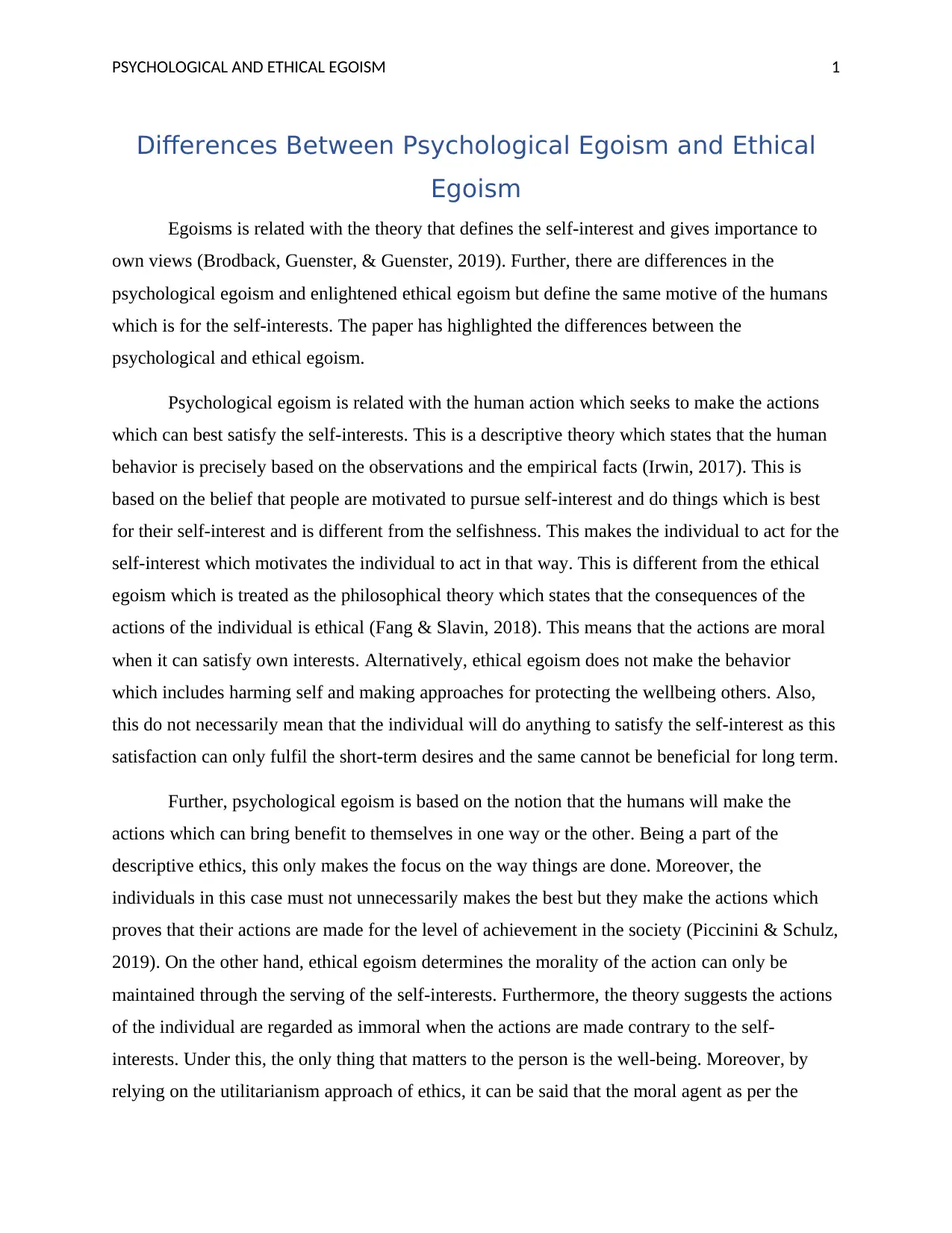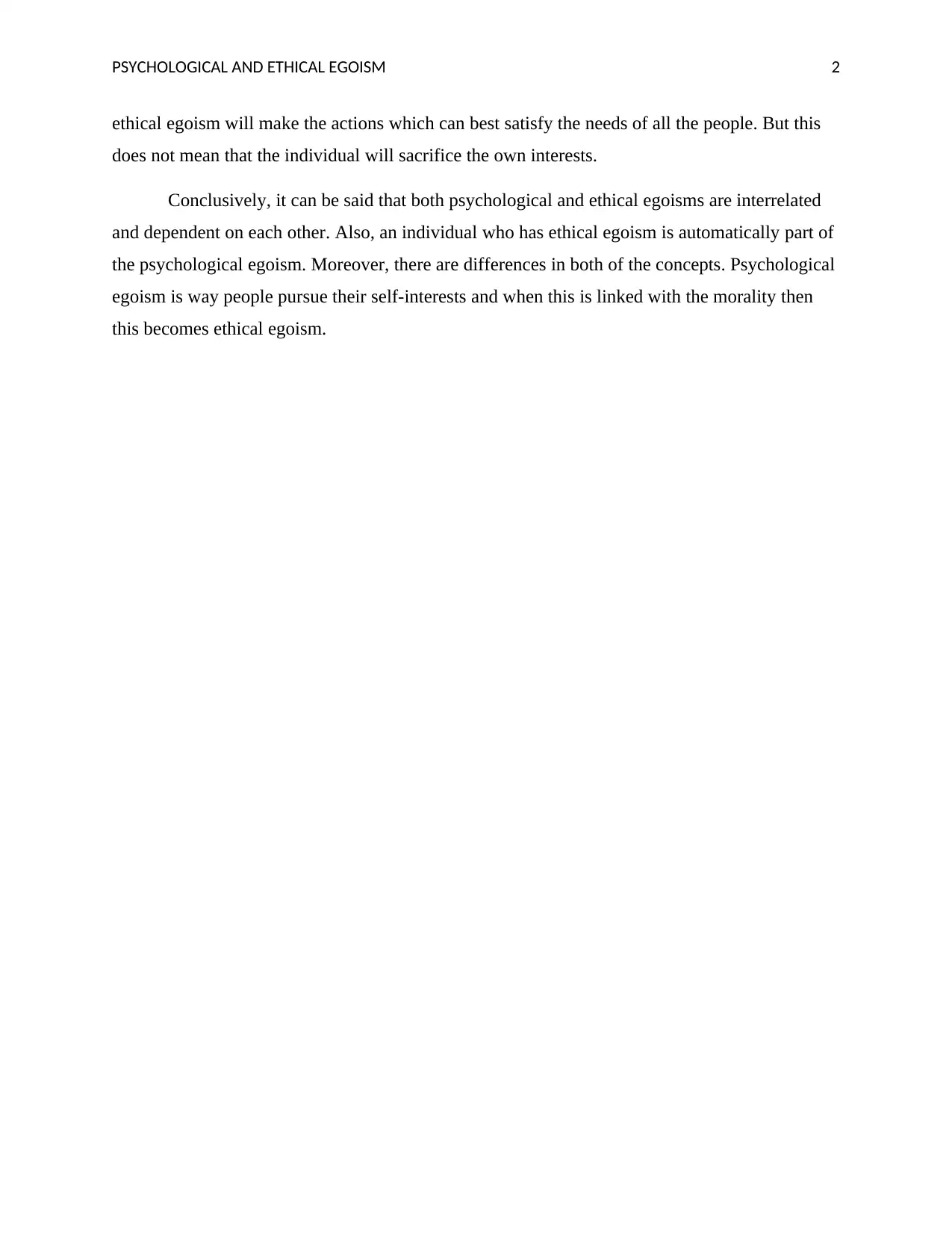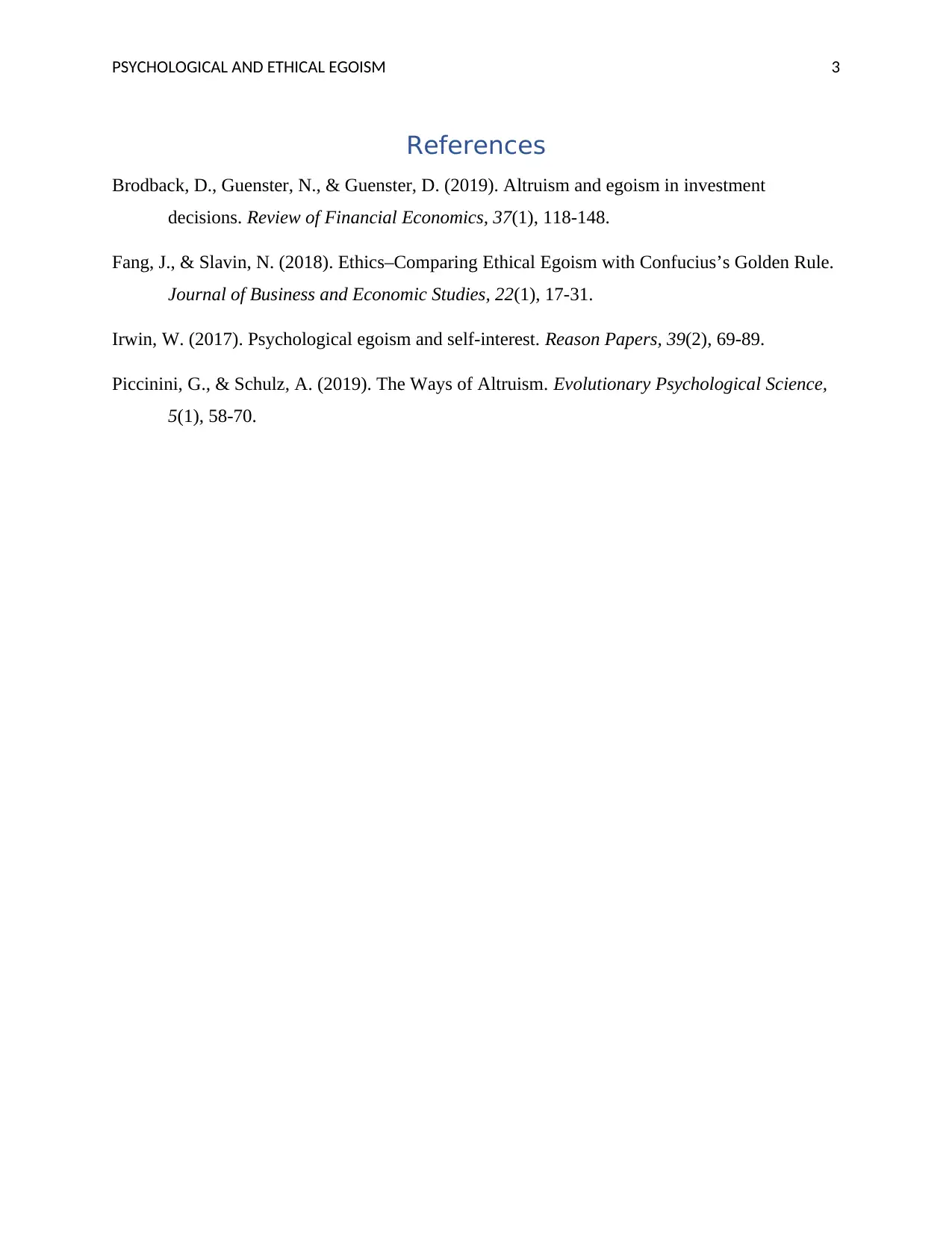An Analysis of Psychological and Ethical Egoism Concepts
VerifiedAdded on 2022/09/16
|4
|709
|19
Essay
AI Summary
This essay provides a comparative analysis of psychological and ethical egoism. It begins by defining egoism as a theory emphasizing self-interest. The essay then distinguishes between psychological egoism, which describes human actions as motivated by self-interest, and ethical egoism, which posits that actions are moral if they serve one's own interests. Psychological egoism is presented as a descriptive theory based on empirical facts, while ethical egoism is framed as a philosophical theory concerning the morality of actions. The essay highlights that ethical egoism does not necessarily advocate for actions that harm oneself or others but rather focuses on long-term self-interest. The paper further contrasts the descriptive nature of psychological egoism with the moral implications of ethical egoism, concluding that the two concepts are interrelated, with ethical egoism building upon psychological egoism. The essay references various academic sources to support its arguments.
1 out of 4











![[object Object]](/_next/static/media/star-bottom.7253800d.svg)